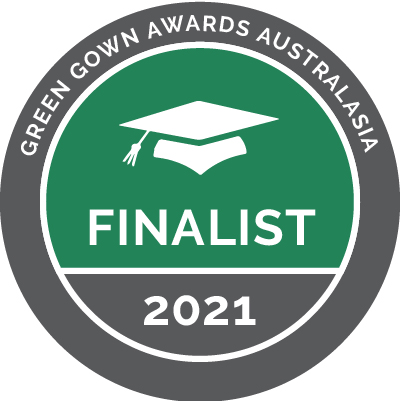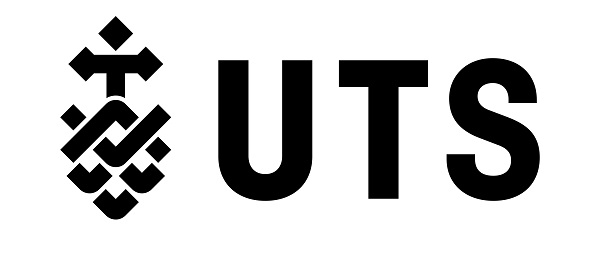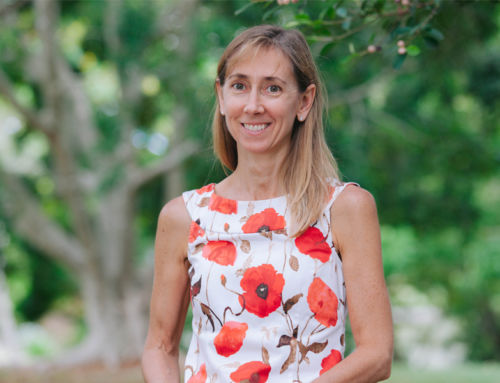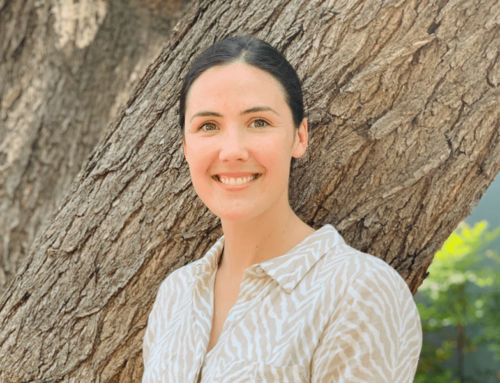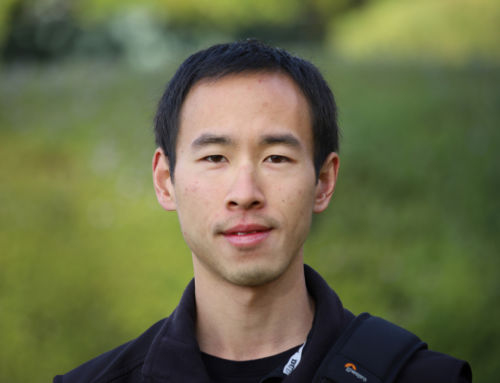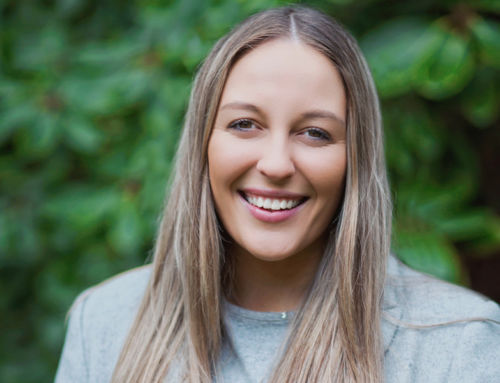University of Technology Sydney
Klara Janickova is a professional staff member at UTS and a passionate leader of sustainability initiatives on campus and in the broader community. She is a keen freediver who, along with an active local group participates in weekly ocean clean-up dives to raise awareness of plastic ocean pollution. She is an accredited marine animal rescue volunteer and committed community educator who works to highlight the threats facing marine animals. She is an active member of the Bondi Surf Life Saving club.
On campus, Klara has been the driving force behind the establishment of two Green Impact teams, and was recognised by her peers as a true leader of sustainability – winning a 2021 UTS Green Hero Award. All of her efforts are voluntary, over and above her formal role.
> A closer look
I have been a staff member at UTS for about 5 years, in the role of Office Administrator with the Faculty of Science, before moving to my current role of EA to General Counsel and Office Coordinator with the Legal Unit. I am passionate about the natural world and have initiated and organised many sustainability initiatives – all over and above my official job. Below is a summary of some key activities and achievements of the past few years.
AT UTS
- Green Impact Program
In 2020 I initiated the formation of the ‘Mission S’ Green Impact team within the Faculty of Science. Our team of 8 people completed 47 sustainability actions and was the overall winner for the year. Due to COVID-19 lock down restrictions many of our actions were home based, with members doing things like establishing worm farms, compost bins, improving recycling systems at home, and lots more.
- Faculty of Science Sustainability Committee
I joined this new committee in 2019, set up to help staff within the Faculty ‘walk the talk’ on sustainability. A major focus of the Committee was to improve the sustainability of science lab operations, especially phasing out single use plastics, as well as improving office catering within the Faculty. A key achievement in 2019 was lobbying UTS management to sign the United Nations Climate Emergency declaration. In September that year UTS was the first university in Australia to sign!
- Green Hero Award
I won second place in the 2021 UTS Green Hero Awards, these internal awards are where UTS staff and students nominate their peers for recognition of sustainability deeds undertaken.
- Sea Dragon fundraiser
Despite no longer working directly in the Faculty of Science, I am currently volunteering to organise a fundraiser to support the work of Professor David Booth and his team on Sea Dragon research. These are the underwater equivalent of the koala – incredibly beautiful, found only in Australia, and sadly becoming increasingly threatened. The fundraiser will be held from July and aims to motivate fellow ocean lovers to provide data and photographs toward this reasearch.
UTS news article: https://www.uts.edu.au/news/campus-community/klara-and-seadragons
IN THE COMMUNITY
- Ocean clean up
For over 2 years I have been very active in the Sydney Free Divers and VIZ organisation community where we use collected ocean debris for community education. We are about 20 dedicated freedivers who go diving 2-3 times each week in teams of 3-4 people. We dive locations around Sydney harbour and suburban beaches with the specific aim of collecting plastic rubbish from the ocean – floating on the surface, in the water column, and from the sea floor. We record, monitor and report the rubbish we collect and remove through the Clean Swell app and Debris Tracker , recently recording over 100kg of marine debris, mostly plastic and lost and discarded fishing gear.
- Marine animal rescue
I am a certified marine animal rescue volunteer with ORRCA and Australian Seabird Rescue and regularly participate in locating and rescuing injured marine mammals, birds and turtles. For example, in May I went on 2 dives looking for a turtle that had been sighted at Maroubra beach with a lure consisting of 3 large hooks imbed in its neck and one flipper. I was one of the divers who spend almost 3 hours looking for her that day. Eventually, Rossita was found hiding in a cave by one of our divers. She was rescued, rehabilitated and released back into the wild as a healthy turtle on World Ocean Day on June 8th this year. A great success for everyone involved!
- Sea Shepherd
I recently joined the Sea Shepherd Conservation Society with the specific aim of doing more public education work. I am undertaking training to be able to talk at schools and community meetings about the threats facing the oceans and marine life.
- Surf Live Saving
I have been an active member of my local North Bondi chapter of Surf Life Saving NSW for 2 years, volunteering on weekend patrols each month.
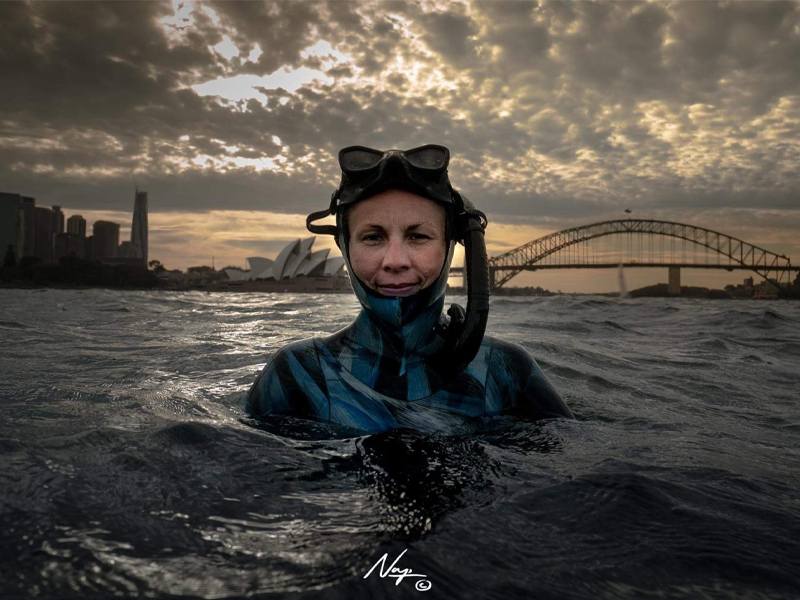
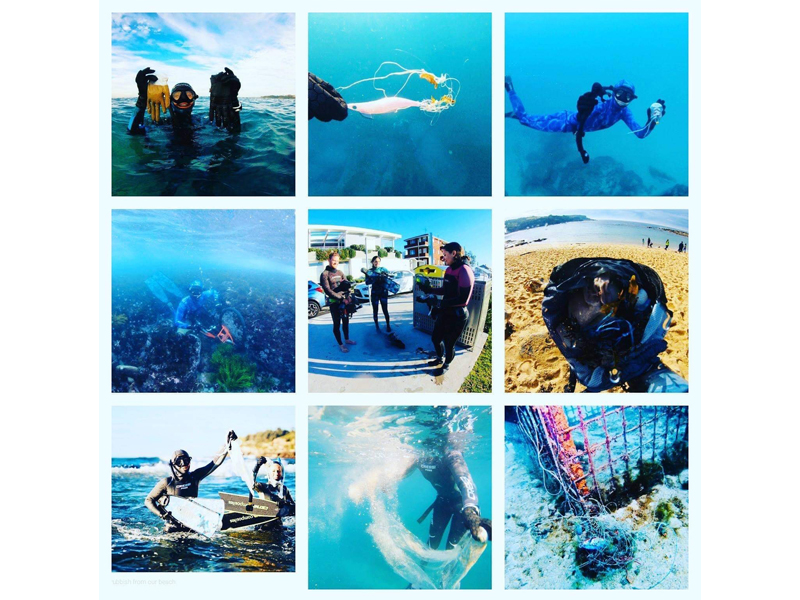
> Impact and benefits
Green Impact Program
I led many of the actions undertaken by the ‘Mission S’ team and personally produced one of our bonus actions, the guide Sustainability in the Office to help improve the procurement of stationary, kitchen products, and office catering. This guide includes the promotion of Indigenous owned and managed suppliers and continues to be used in the Faculty today. In early 2021 I moved to a new role with UTS Legal and am currently in the process of establishing a new Green Impact team within the Legal Unit to get more people in other parts of the university involved in sustainability.
Faculty of Science Sustainability Committee
This committee is unique within the university and started because scientists felt frustrated that while they work in, and advocate for sustainability, they often feel disempowered to ‘walk the talk’ in their professional lives. This Committee was established to try and address this issue. It has been successful at helping to reduce the amount of animal products in office catering, and most significantly played an instrumental role in UTS becoming the first university in Australia to sign the UN Climate Emergency declaration. When the decision and announcement was made in September 2019 the Vice Chancellor Attila Brungs said the decision was made “ on a recommendation from the UTS Faculty of Science and the research community, UTS today signed the Climate Emergency Declaration.” The Science Faculty Sustainability Committee has since been invited to have a representative on the high level university wide Sustainable Steering Committee. Other faculties across the university are also considering how the Science Committee model could be used to establish similar local sustainability committees in other faculties.
Ocean Clean up
I love free diving and the underwater world. I am currently registered to dive to 26 meters and training for 35 meters. This depth is ample to collect rubbish from Sydney’s suburban and harbour shoreline. My team usually dives 2-3 times per week and we always carry collection bags and collect waste. Plastic is by far the largest waste item, including fishing line and tackle. Much of this needs to be painstakingly untangled from sea kelp and underwater landscape to avoid damaging underwater life. Every time we dive we photograph the material collected and post images on social media channels to raise awareness of the problem in the broader public. Data collected on the volume, location, and nature of waste is reported on the VIZ website. Our group also participates in the Sea Bees underwater group to highlight the threats facing marine animals from marine plastic pollution. We also record citizen science data on marine animal and fish species sightings on the NSW Underwater Research Group.
Marine animal rescue
When ever we come across an injured animal, of specific endangered species, we have to make sure that the animal receives proper care and is not traumatized so its chance of survival is high. In some cases when an animal requires additional care, they are transported to a specialized vet for rehabilitation at the rescue centre. The national parks then gives permission when the animal can be released back into the wild. For example, a green turtle needs the water temperature to be around 21 degrees to be released. I am a member of Australian Seabird Rescue and ORRCA.
> Leadership and engagement
I joined the Sea Shepherd and Australian Seabird Rescue organisation specifically with the intention of getting more active as an educator, to use my personal experience as a diver, clean-up coordinator, and animal rescue volunteer to motivate and educate others. I love diving and collecting rubbish, but as a society we must tackle the problem in a more systemic way – by stopping the flow of plastic waste going into the oceans. I am scheduled to receive my training in July as an induction and then will look into some of the events with my Sydney chapter coordinator. I am also trying to raise awareness of the importance of sharks in the ocean and work on creating sanctuaries and address the issue of removing outdated shark nets from our beaches.
> Wider societal impact
My work with the freediving team collecting marine rubbish is much more than a local clean-up effort. Our work is designed to raise awareness in the broader community about the problem of marine pollution, especially plastic pollution, and the associated impacts on marine wildlife. We go to great efforts to document our work in pictures and words, and spread the conservation message through social media. As leverage, we liaise and work closely with many other organisations and initiatives such as participating in Clean–up Australia Day, The Ocean Conservancy, and Marine Debris Tracker to build capacity and maximise the impact of our efforts. This work has helped see the issue of marine plastic pollution become a main stream concern in recent years. Similarly, my work with Surf Life Saving NSW is about contributing to something where the end result is greater than the sum of the parts – my individual contribution is small, but together the efforts of many keeps our beaches relatively safe for everyone to enjoy.
Grey Nurse Shark Aggregation site at Bondi
A group of us (4 members) have joined forces with several NGO’s, diving centres and scientists to help establish a protection zone for the critically endangered Grey Nurse Sharks. We have created a database where we have almost 40 shark individuals predominantly females visiting this place during their migration. We tract the number of sightings, their size, sex and any visible injuries usually caused by human activity.
This project is also hoping to help with the upgrade of beach safety and stop the use of harmful meshing program. The next step would be to turn this zone into a sanctuary as it is popular with diverse marine life including the vulnerable and Australia only Seadragons.
The aim of this project is also to educate and reach out to the community in terms of spreading awareness through education about safer technologies and the impact of current measures.
https://www.uts.edu.au/news/campus-community/klara-and-seadragons (added in the Seadragon section)

